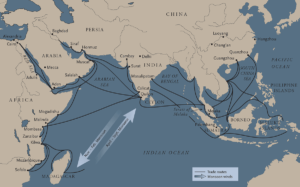Introduction to Taxation
This lesson looks at the introduction to taxation and a brief history of taxation. Taxes are involuntary fees levied on individuals or corporations and enforced by a government entity — whether local, regional or national — in order to finance government activities [1]. The taxes are involuntary because they are levied upon the citizens by the government through laws, failure to comply resultants in punitive measures such as penalties, imprisonment or both.
In our day to day life, we pay taxes on every purchase we make for goods and services, when going paid salaries, when importing goods from abroad and so on. Taxes are certain and here to stay.
“There are only two things certain in life; Death, Taxes ” Benjamin Franklin.
History of Taxation
The history of taxation dates many years ago, ancient civilisations like the Greeks and the Romans charged taxes on their citizens to raise their armies and other public services.
The Bible also has a scripture where Jesus is quoted saying “.. and Jesus answering said unto them, render to Caesar the things that are Caesar’s, and to God the things that are God’s. And they marvelled at him.” [2]
In Kenya, the history of taxation dates back to the earlier periods even before colonisation during the coastal trade by the Arabs and the Portuguese.
The Arabs traders that were under the Sultan from Oman paid several taxes even after breaking from the Oman sultan to from several Sultanates of Zanzibar, Mombasa, Malindi, Pete, Pemba, Mafia, Kilwa, and Witu. [3]. The taxpayers were divided into two; the citizenry within the Sultanates and the traders. The citizenry were the Arabs, families from intermarriages and Africans who had converted to Islam, on the other hand, the traders were diverse from India, Europe, and Mauritius. [3]
The Sultanate applied a system of taxation that was a mixture of Islamic Law as well as taxation of trade. As a result, the citizenry were taxed using the Islamic law based taxes which were, zakat, jizya, sadaqa and khums in addition to customs levy, capitation tax as well as harbour fees. [3]
- Zakat is a form of voluntary single capital tax levied only on Muslims that can never be less than 2.5% on all savings and all cash assets idle for the year. It is used specifically to finance among other things, poor relief, and emancipation of slavery, assistance to individuals serving Islam. Despite its voluntary nature, it is considered taboo not to give this tax if one has savings and interestingly in considered a pillar of Islam as a religion.
- Sadaqa is another form of voluntary tax. It is also given for charitable purposes and is under no control whatsoever, and is a source reliant on the charitable feelings of the Muslim giving it.
- Jizya was a tax imposed on conquered non-Muslims in a Muslim nation under treaties signed between the two communities as a payment in lieu of compulsory military service. It was because the compulsory military could only be imposed on Muslims as conquest was seen as a religious war.18 There are, however, no reports of this tax being applied on Kenya’s coastline.
- Khums was a tax on assets redeemed by force and was a share of the spoils or war booty. It was considered a state asset at the disposal of the leader or war booty of the commander in chief for his personal disposal.
Traders were taxed by the application of a capitation tax, as well as customs. Capitation tax was levied on each slave, on traders taking slaves out of the Sultanate. Customs, on the other hand, were charged on all goods being taken out of the Sultanate.
During the colonial period, the British levied Taxes; Hut Tax and Poll Tax. The 1901 Hut Tax Regulation imposed a tax of one rupee, payable in kind or
through labour, upon every native hut in British East Africa.
Reference
- Investopedia https://www.investopedia.com/terms/t/taxes.asp
- The Bible Mark 12:17
- Taxation without Principles; A Historical Analysis of the Kenyan Taxation System Attiya Waris http://www.kenyalaw.org/Downloads_Otther/waris_taxation.pdf
